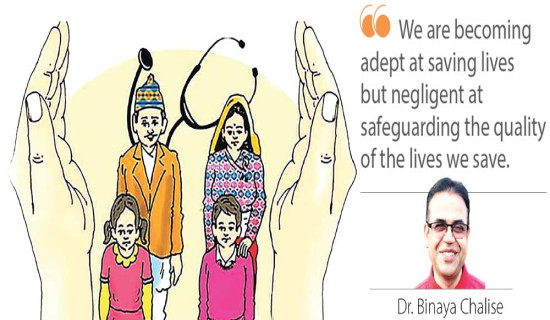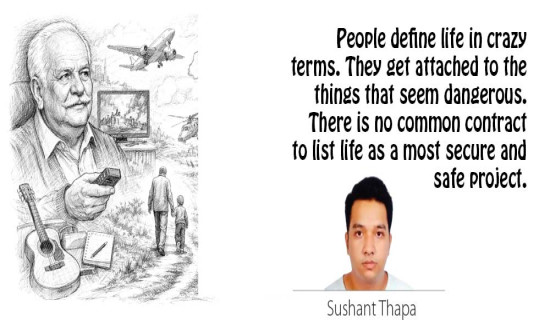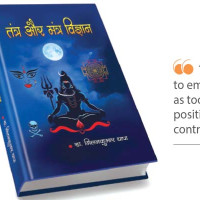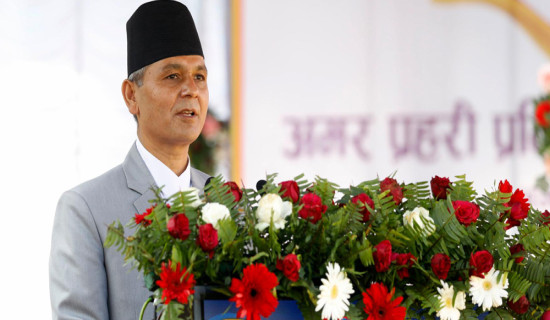- Saturday, 31 January 2026
The Unseen Pressure Of SEE
As a grade X student, I sometimes feel that the entire education system of Nepal is based on cramming culture. As a result, the sole focus of our policy is on the Secondary Education Examination (SEE), which is the very name that overshadows the true spirit of learning. When I say I am a grade X student, people immediately think of the SEE, and it feels as though my entire identity has merged with this particular exam. Since the start of the academic year, everything has been oriented towards this examination, and it seems that every action I take leads to its preparation.
The unseen pressure SEE has put on the students is immense. Instead of being encouraged to explore, understand, and enjoy learning, the education system has conditioned our minds to see education as a means to an end, which, sadly, is passing the SEE. It feels like everything I’m learning, every subject I study, and every test I take is geared towards this single exam. Teachers, parents, and even peers emphasise the importance of SEE results, which makes me feel that my worth as a student is measured solely by my performance on this one test.
Like many other students, I have resorted to cheating in exams in this high-pressure environment. This has become a survival mechanism, not because I don't want to learn, but because the system has made me believe that my success i s determined by how well I perform on a test, not by how much I truly learn. Every exam gives me the impression of a marathon to memorise facts as quickly as possible. When this stress culminates to become overwhelming, cheating seems to be the only way out for us.
The list of flaws in our education system does not end here. We are taught subjects that often have little relevance to our daily lives. For instance, have we ever calculated how much of our time is spent on learning algebra, geometry, and trigonometry? How many of us will use these concepts in our daily lives in the future?
Instead of teaching us practical knowledge that could help us navigate real-life situations such as financial literacy, problem-solving skills, emotional intelligence, moral science, and other life skills, we are consumed with abstract concepts that often feel disconnected from the problems we face every day. While these subjects might be important in certain fields, they don’t provide us with the tools to deal with real-life challenges.
The sustained emphasis on SEE has significantly impacted the way I view education. In most classrooms, my focus has shifted from understanding concepts or developing critical thinking skills to cramming formulas and facts to pass the exam. This approach alienates me and many others from the material. Instead of inculcating a love for learning, the system pushes us to cram for exams that feel like a never-ending routine.
As the exam approaches, the stress only increases. We are made to believe that the SEE will determine our future and that our entire lives depend on the grades we secure in this one test. This pressure has turned the SEE into a defining part of my identity. The overemphasis on SEE has robbed us of the joy of learning, leaving little room for creativity, self-growth, or exploration beyond the curriculum.
It’s shocking to realise that, instead of preparing us for holistic development, the education system seems to be focused solely on preparing us to pass a test. Moreover, judging the performance of all students adorned with their unique specialities through a single tool does not seem to be a justifiable approach. Education should help us develop our personalities, enrich the students with love for learning, and provide us with the skills needed to explore the world. However, in the current system, it appears to us that everything is geared towards passing a single exam.
Education should be about nurturing inquisitive minds, teaching skills needed in everyday life, and equipping us to solve real-world problems. After all, we are more than the result of one exam. We have immense potential as students, as citizens of this country, and as responsible members of this society.
The system that tries to define the potential of thousands of students through a single test is not justifiable. At the very least, I can say that this exam has negatively affected our lives. We are compelled to give up our hobbies and interests merely to sit down and prepare for the exam. It’s high time the government focused on a holistic education system where the quality and interest of every student are addressed and groomed to produce skilful people able to sustain their lives smoothly.
Grade X, Pathshala Nepal Foundation, Thapagaun, Kathmandu

















